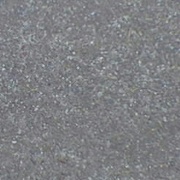Difference between revisions of "Cement"
Jump to navigation
Jump to search
(username removed) |
(username removed) |
||
| Line 2: | Line 2: | ||
== Description == | == Description == | ||
| − | 1) A strong adhesive. Examples are [http://cameo.mfa.org/materials/fullrecord.asp?name=rubber | + | 1) A strong adhesive. Examples are [http://cameo.mfa.org/materials/fullrecord.asp?name=rubber%20cement rubber cement] and [http://cameo.mfa.org/materials/fullrecord.asp?name=cellulose%20cement cellulose cement]. |
| − | 2) A finely powdered inorganic material that can be mixed with water then dried to form a solid, durable mass. Examples of cement materials are [http://cameo.mfa.org/materials/fullrecord.asp?name=plaster plaster], [http://cameo.mfa.org/materials/fullrecord.asp?name=lime lime], [http://cameo.mfa.org/materials/fullrecord.asp?name=pozzolan | + | 2) A finely powdered inorganic material that can be mixed with water then dried to form a solid, durable mass. Examples of cement materials are [http://cameo.mfa.org/materials/fullrecord.asp?name=plaster plaster], [http://cameo.mfa.org/materials/fullrecord.asp?name=lime lime], [http://cameo.mfa.org/materials/fullrecord.asp?name=pozzolan%20cement pozzolan cement] and [http://cameo.mfa.org/materials/fullrecord.asp?name=portland%20cement portland cement]. |
3) A natural mineral material, usually chemically precipitated, that occurs in the spaces among the individual grains of a consolidated [http://cameo.mfa.org/materials/fullrecord.asp?name=sedimentary sedimentary] rock, thereby binding the grains together as a rigid mass. Common cements are [http://cameo.mfa.org/materials/fullrecord.asp?name=silica silica], carbonates, and iron oxides. | 3) A natural mineral material, usually chemically precipitated, that occurs in the spaces among the individual grains of a consolidated [http://cameo.mfa.org/materials/fullrecord.asp?name=sedimentary sedimentary] rock, thereby binding the grains together as a rigid mass. Common cements are [http://cameo.mfa.org/materials/fullrecord.asp?name=silica silica], carbonates, and iron oxides. | ||
| Line 25: | Line 25: | ||
== Authority == | == Authority == | ||
| − | * | + | * Submitted information Comment: José Delgado Rodrigues, LNEC, 2009. |
| − | * | + | * G.S.Brady, ''Materials Handbook'', McGraw-Hill Book Co., New York, 1971 Comment: p. 172 |
| − | * | + | * Ralph Mayer, ''A Dictionary of Art Terms and Techniques'', Harper and Row Publishers, New York, 1969 (also 1945 printing) |
| − | * | + | * Richard S. Lewis, ''Hawley's Condensed Chemical Dictionary'', Van Nostrand Reinhold, New York, 10th ed., 1993 |
* ''Dictionary of Building Preservation'', Ward Bucher, ed., John Wiley & Sons, Inc., New York City, 1996 | * ''Dictionary of Building Preservation'', Ward Bucher, ed., John Wiley & Sons, Inc., New York City, 1996 | ||
| − | * ''Encyclopedia Britannica'', http://www.britannica.com Comment: Cement. Retrieved May 25, 2003, from | + | * ''Encyclopedia Britannica'', http://www.britannica.com Comment: Cement. Retrieved May 25, 2003, from Encyclopædia Britannica Premium Service. |
| − | * | + | * Matt Roberts, Don Etherington, ''Bookbinding and the Conservation of Books: a Dictionary of Descriptive Terminology'', U.S. Government Printing Office, Washington DC, 1982 |
* ''Encyclopedia of Archaeology'', Glyn E. Daniel, ed., Thomas Y. Crowell Co., New York, 1977 | * ''Encyclopedia of Archaeology'', Glyn E. Daniel, ed., Thomas Y. Crowell Co., New York, 1977 | ||
| Line 43: | Line 43: | ||
* ''Van Nostrand's Scientific Encyclopedia'', Douglas M. Considine (ed.), Van Nostrand Reinhold, New York, 1976 | * ''Van Nostrand's Scientific Encyclopedia'', Douglas M. Considine (ed.), Van Nostrand Reinhold, New York, 1976 | ||
| − | * | + | * Random House, ''Webster's Encyclopedic Unabridged Dictionary of the English Language'', Grammercy Book, New York, 1997 |
* ''The American Heritage Dictionary'' or ''Encarta'', via Microsoft Bookshelf 98, Microsoft Corp., 1998 | * ''The American Heritage Dictionary'' or ''Encarta'', via Microsoft Bookshelf 98, Microsoft Corp., 1998 | ||
| Line 49: | Line 49: | ||
* Wikipedia, the free encyclopedia, at http://www.wikipedia.com Comment: http://en.wikipedia.org/wiki/Cement (Accessed Mar. 1, 2006) | * Wikipedia, the free encyclopedia, at http://www.wikipedia.com Comment: http://en.wikipedia.org/wiki/Cement (Accessed Mar. 1, 2006) | ||
| − | * | + | * Theodore J. Reinhart, 'Glossary of Terms', ''Engineered Plastics'', ASM International, 1988 |
* Art and Architecture Thesaurus Online, http://www.getty.edu/research/tools/vocabulary/aat/, J. Paul Getty Trust, Los Angeles, 2000 | * Art and Architecture Thesaurus Online, http://www.getty.edu/research/tools/vocabulary/aat/, J. Paul Getty Trust, Los Angeles, 2000 | ||
Revision as of 06:48, 24 July 2013
Description
1) A strong adhesive. Examples are rubber cement and cellulose cement.
2) A finely powdered inorganic material that can be mixed with water then dried to form a solid, durable mass. Examples of cement materials are plaster, lime, pozzolan cement and portland cement.
3) A natural mineral material, usually chemically precipitated, that occurs in the spaces among the individual grains of a consolidated sedimentary rock, thereby binding the grains together as a rigid mass. Common cements are silica, carbonates, and iron oxides.
Synonyms and Related Terms
ciment (Fr.); caementum (Lat.); cement (Dan., Ned., Pol., Sven.); Zement (Deut.); cemento (Esp.); sement (Nor.); cimento (Port.);
Additional Images
Authority
- Submitted information Comment: José Delgado Rodrigues, LNEC, 2009.
- G.S.Brady, Materials Handbook, McGraw-Hill Book Co., New York, 1971 Comment: p. 172
- Ralph Mayer, A Dictionary of Art Terms and Techniques, Harper and Row Publishers, New York, 1969 (also 1945 printing)
- Richard S. Lewis, Hawley's Condensed Chemical Dictionary, Van Nostrand Reinhold, New York, 10th ed., 1993
- Dictionary of Building Preservation, Ward Bucher, ed., John Wiley & Sons, Inc., New York City, 1996
- Encyclopedia Britannica, http://www.britannica.com Comment: Cement. Retrieved May 25, 2003, from Encyclopædia Britannica Premium Service.
- Matt Roberts, Don Etherington, Bookbinding and the Conservation of Books: a Dictionary of Descriptive Terminology, U.S. Government Printing Office, Washington DC, 1982
- Encyclopedia of Archaeology, Glyn E. Daniel, ed., Thomas Y. Crowell Co., New York, 1977
- Van Nostrand's Scientific Encyclopedia, Douglas M. Considine (ed.), Van Nostrand Reinhold, New York, 1976
- Random House, Webster's Encyclopedic Unabridged Dictionary of the English Language, Grammercy Book, New York, 1997
- The American Heritage Dictionary or Encarta, via Microsoft Bookshelf 98, Microsoft Corp., 1998
- Wikipedia, the free encyclopedia, at http://www.wikipedia.com Comment: http://en.wikipedia.org/wiki/Cement (Accessed Mar. 1, 2006)
- Theodore J. Reinhart, 'Glossary of Terms', Engineered Plastics, ASM International, 1988
- Art and Architecture Thesaurus Online, http://www.getty.edu/research/tools/vocabulary/aat/, J. Paul Getty Trust, Los Angeles, 2000





